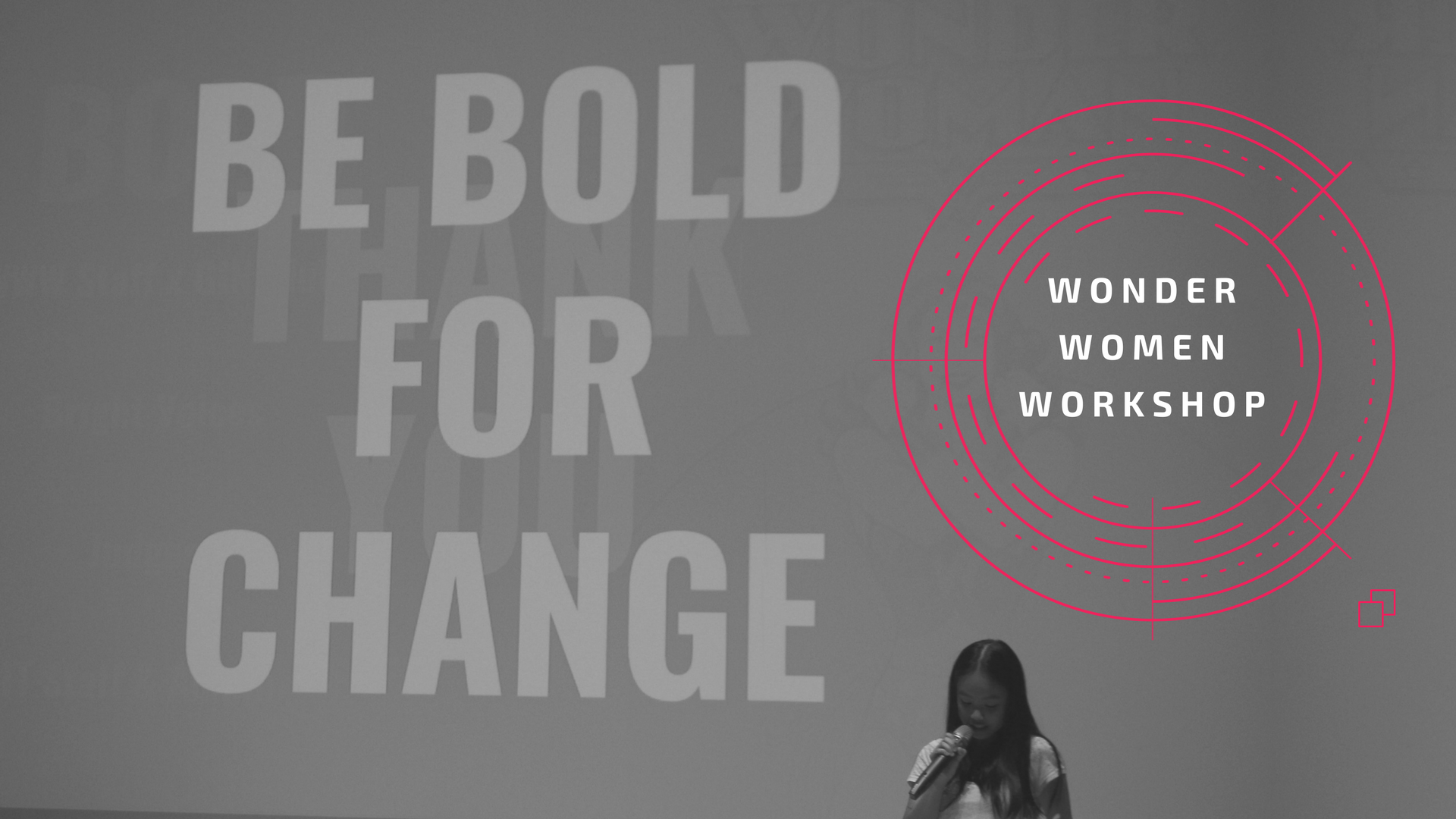WRITTEN BY ERIC CHOU, WILLY LIAO

On February 15th, students attended an event held by GIN club — the Wonder Women Workshop. The Wonder Woman Workshop is a series of activities hosted for 4 weeks promoting female rights and gender equality. In the presentation, Angela Chen, the initiator of the workshop, explained that the name Wonder Women was inspired by the characteristics that Wonder Woman presents in the DC Comics. Wonder Woman is a female superhero who works side-by-side with Superman to shelter people from harm in the fictional world; she is characterized by her independence, strength, and power. Wonder Woman, therefore, breaks the conventional stereotype subjected to women indicating their roles as stay-at-home wives, and demonstrates the strong, capable side of women. However, despite the existence of such women representations in the fictional world, the reality suggests otherwise. Women have long been the target of gender inequality, unjust social expectations and unequal treatment. In Angela’s speech, she stressed that the pursuit of feminism is not making women superior to men but to aim for equal opportunities between two genders. The presentation was summed up by a short but powerful quote: “Human rights are women’s rights, and women’s rights are human rights.”




On the February 22th , GIN club hosted their first event addressing “gender privilege”. A video was shown before activities began. In the video, people from different gender, age, and race groups gathered and were asked a series of questions. If the answer to the questions was a “yes”, the person would take a step forward. An example of the type of question asked was: “Is your boss at work the same gender as you?” After the experiment, participants were told to look back. Surprisingly, most participants who were standing at the front were males, while most female participants assembled at the back. This video aimed to demonstrate the overwhelming amount of job positions and various opportunities that males have privilege to over females, and served as evidence to the unequal rights that exist between two genders. Following the video, students and teachers expressed their views on what they just watched and shared their experiences of mistreatment caused by their gender. The GIN members ended the event of the day by re-emphasizing the ultimate goal of this project — to promote “equalization” between both genders instead of bringing females to the top of ladder.




On the first day of March, GIN club hosted six stations discussing gender stereotypes. The workshop started with a video asking participants to act out their own definitions of “being a girl”. Most of the boys carried out movements that suggest what they believed to be “feminine”. In one of the examples, they pretended to throw a ball softly and clumsily, with their arms bent inward. Following that, they were asked to interpreted the phrase “like a girl”. Most of the boys regarded the phrase as a symbol of weakness and inferiority. However, when the video switched its course to asking young girls to act upon the same set of questions, the girls reacted differently from the boys; their actions showed confidence, without signs of hesitation or fragility. The girls also defined the phrase “like a girl” without any stereotypical bias.
After the video, the workshop proceeded to a free write session. Students wrote down their first impressions of the video and connected them to their personal experiences. Then, a discussion time was set for every person to share their stories regarding the gender bias they have witnessed or been exposed to. Interestingly, some boys stated that they have once been told to ”man up”. This demonstrates a social expectation similar to that imposed on females, as males are constantly raised under a masculine image. The GIN club members stressed that behaviors influenced by gender stereotypes should not be encouraged, and hoped that by showing students the video, they could help inspire the true meaning of “gender”.





This week KASPER arranged an interview with Brian Su, the vice president of the GIN club to gain a better insight into what the WWW strives to achieve and the hardships faced throughout the establishment of this workshop.
Q1: What is the goal of WWW?
A: Well, it was started by Angela Chen, an 11th grader, who saw the need of progress on promoting gender equality. Our goals for the workshop was to come up with interactive activities (workshops) to engage KAS students to be aware of gender biases, gender expectations, while educating them about the continuous need to support gender equality. Even more than that, we wanted to clarify that feminism isn’t about favoring women but a strive for equaling, regardless of the sex of an individual. We, primary Angela, designed the workshops on criterion, such as gender privilege and language resulted from gender biases, and urged students to share personal experiences and opinions on the topic.
Q2: Has the club faced any difficulties throughout the course of the WWW?
A: Angela worked with Ms.Barrow a lot on the revisions of the workshop. With the scale of this workshop, GIN couldn’t handle it alone, so we asked art club, Z club, Cadenza, KASPER, and numerous other clubs to help us. Criticisms, or we considered it as “strong opinionated constructive feedbacks”, were hard to deal with, especially when we had been working the project for a significantly long time. However, it was the feedbacks that enabled us to learn and make improvements upon the workshops and the campaign as a whole.
The Wonder Women Workshop wrapped up with success with the interview with Brian Su, the vice president of GIN. We hope that through this workshop, we can bring empowerment to women, and most importantly, equality across both genders, starting from the KAS community.
*Photograph courtesy goes to Annie Huang (11), Amity Huang (11), and Betty Fan (11).
